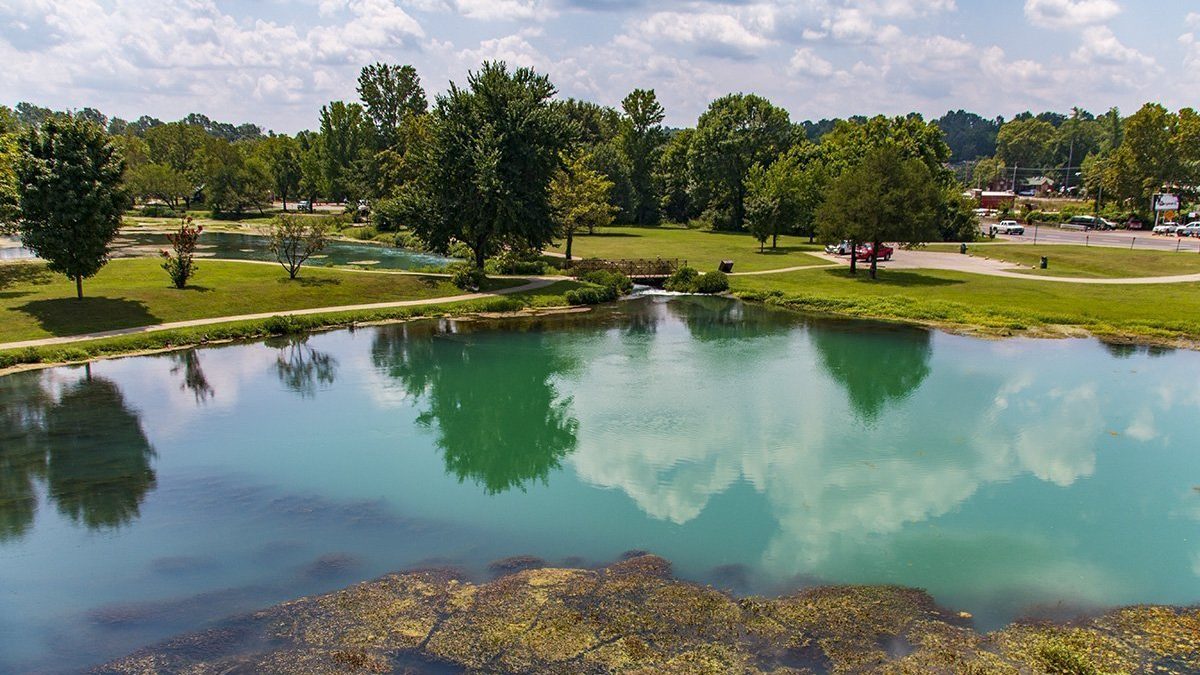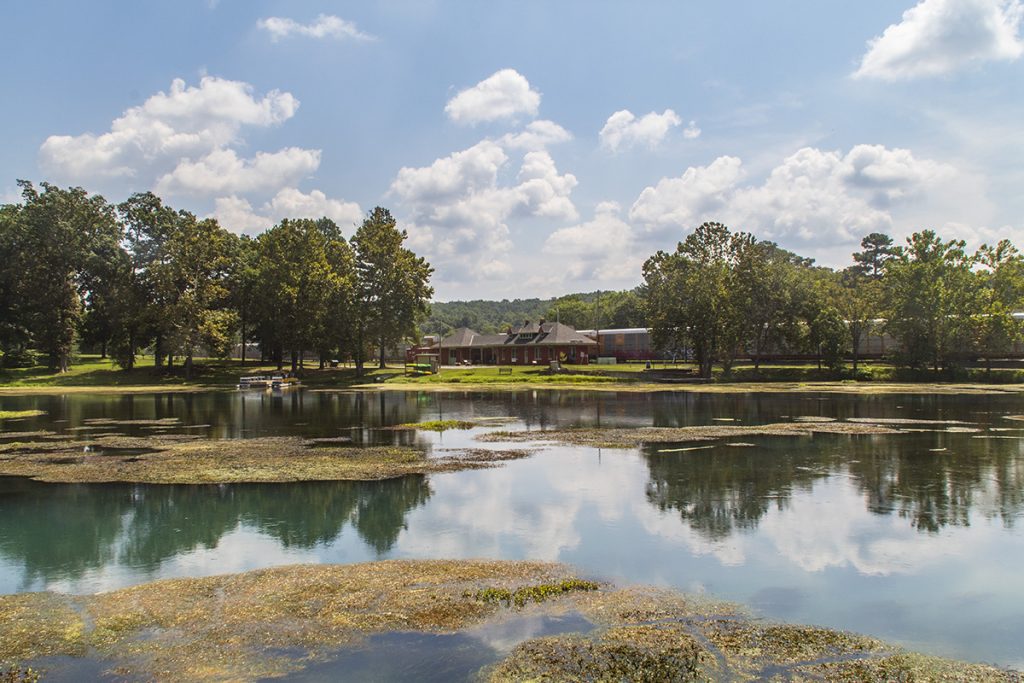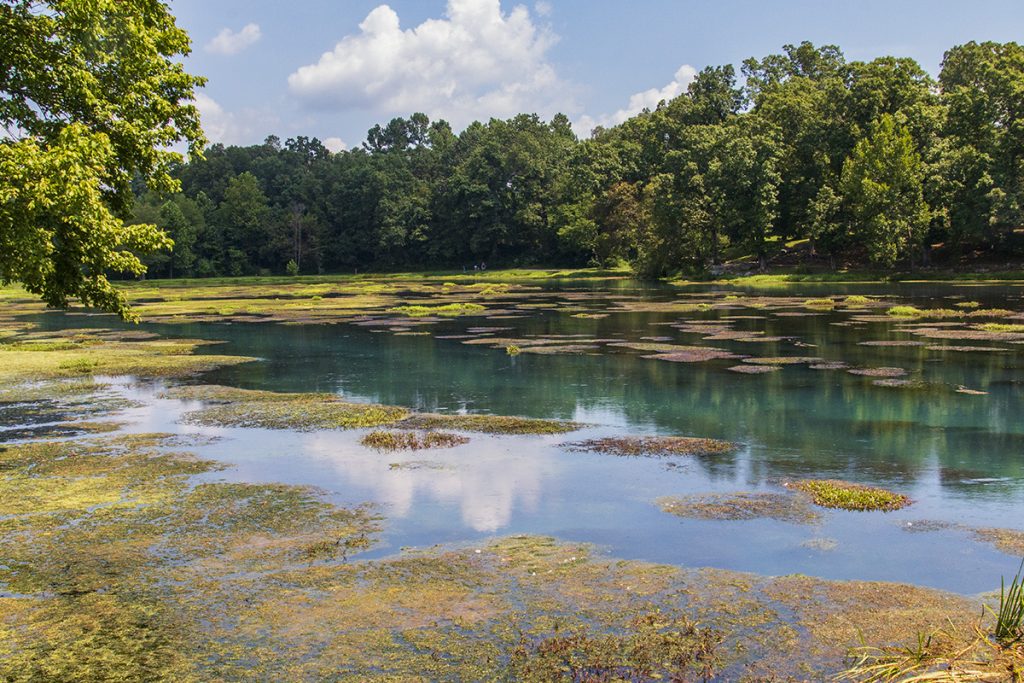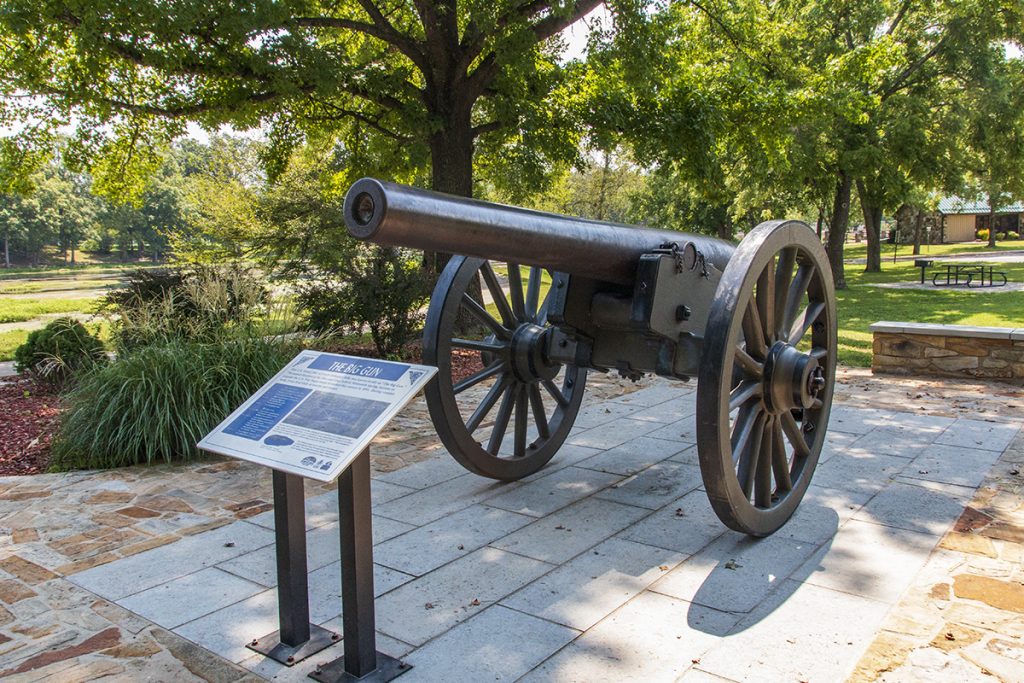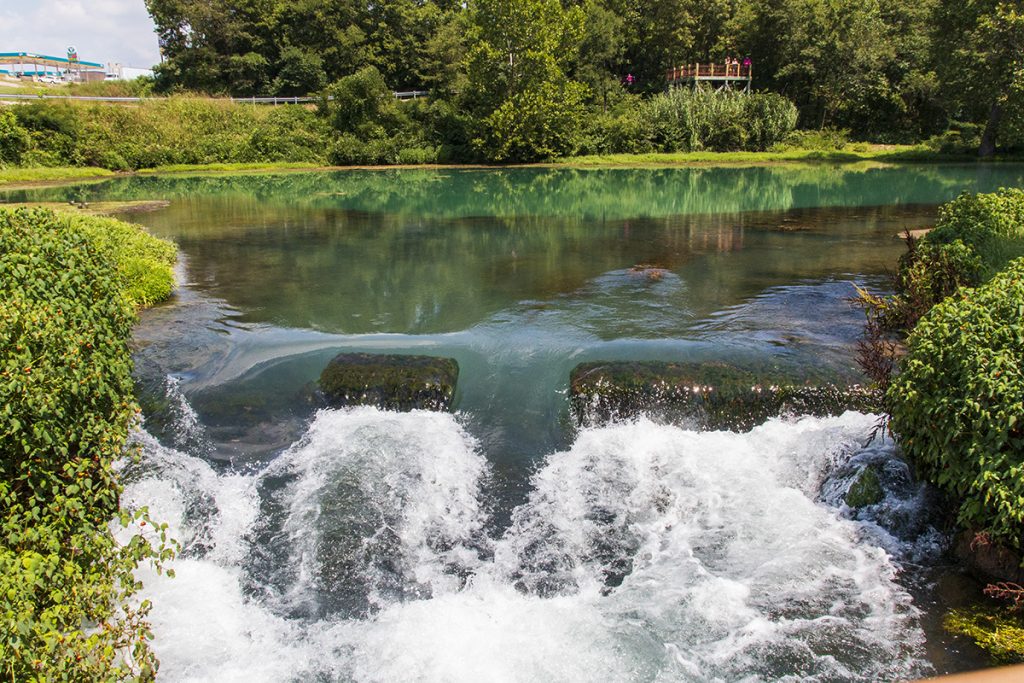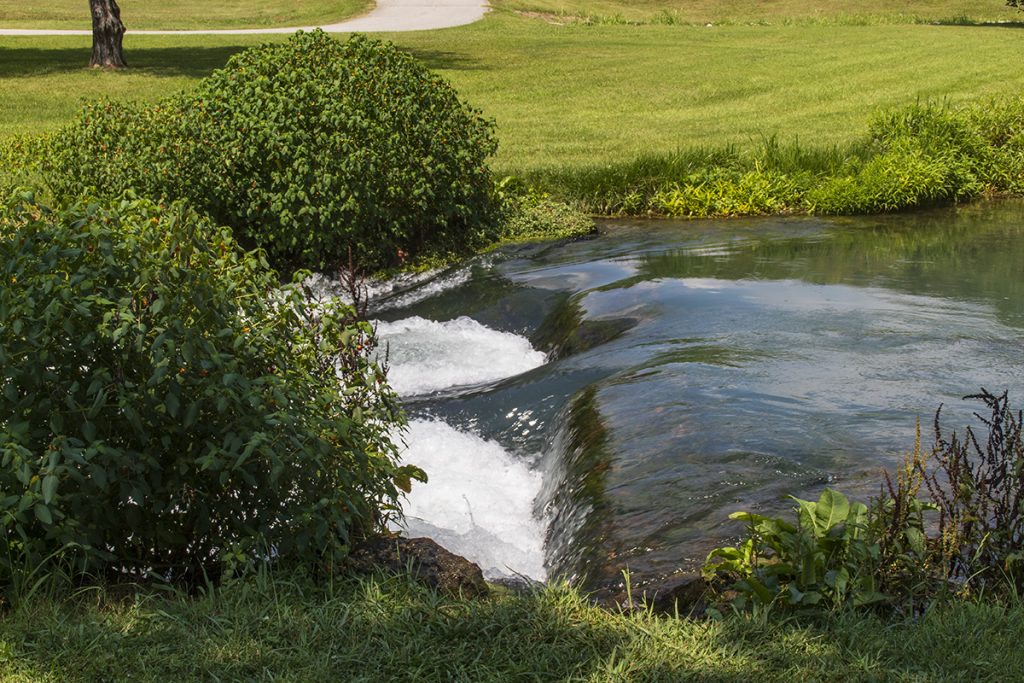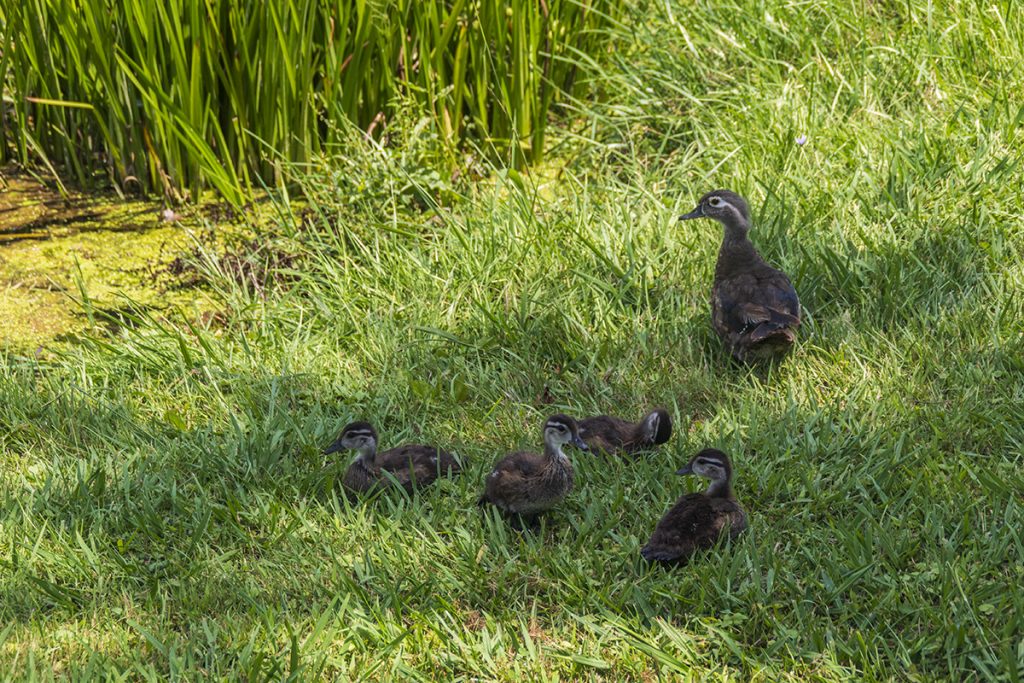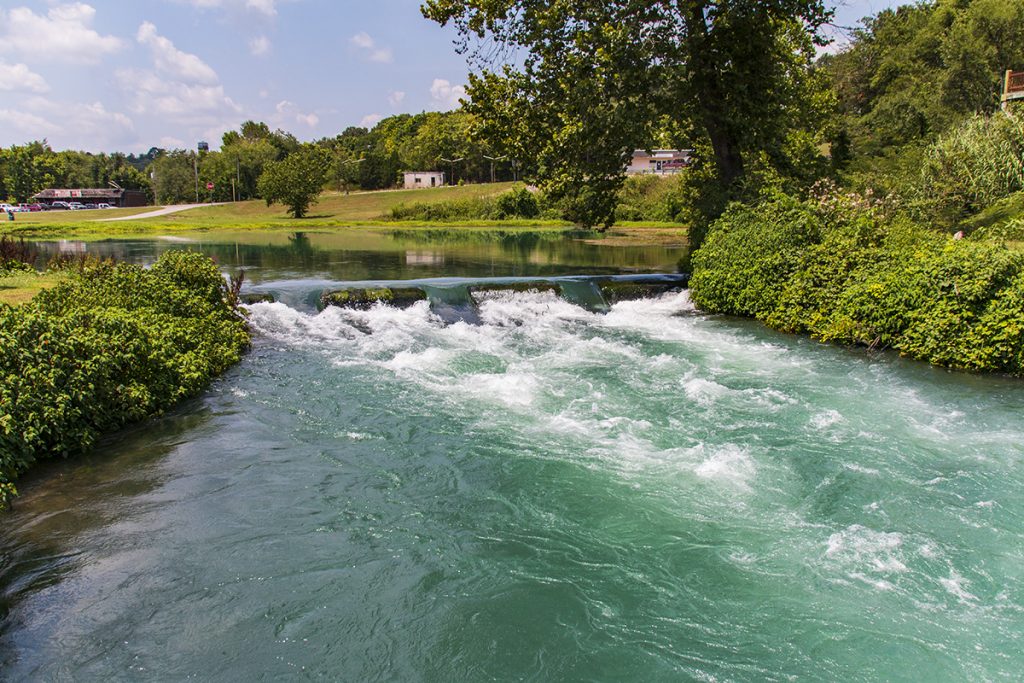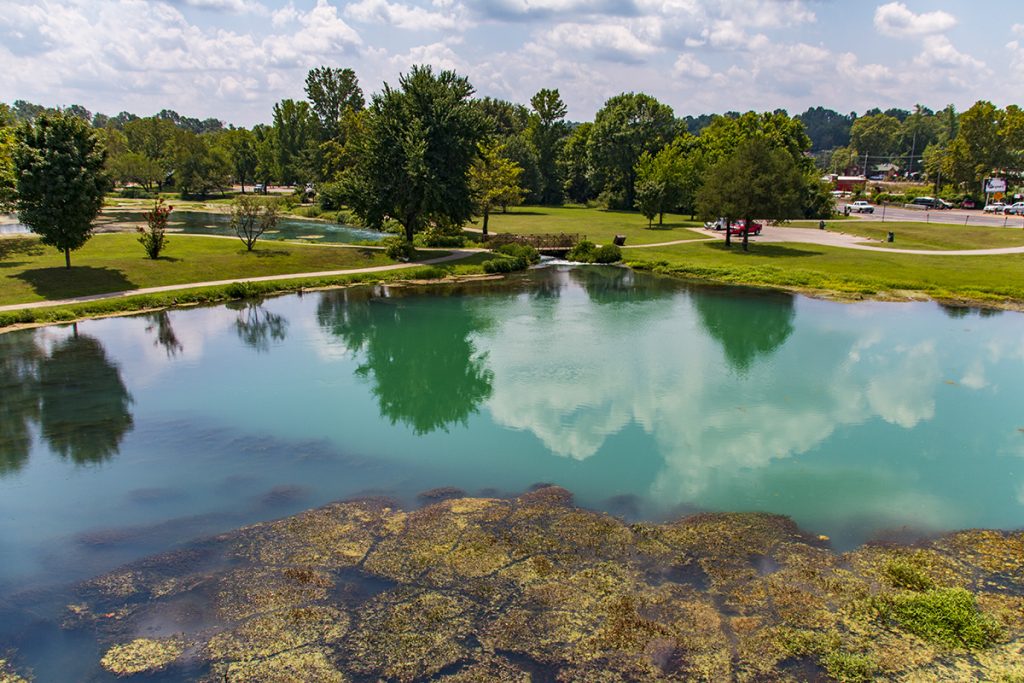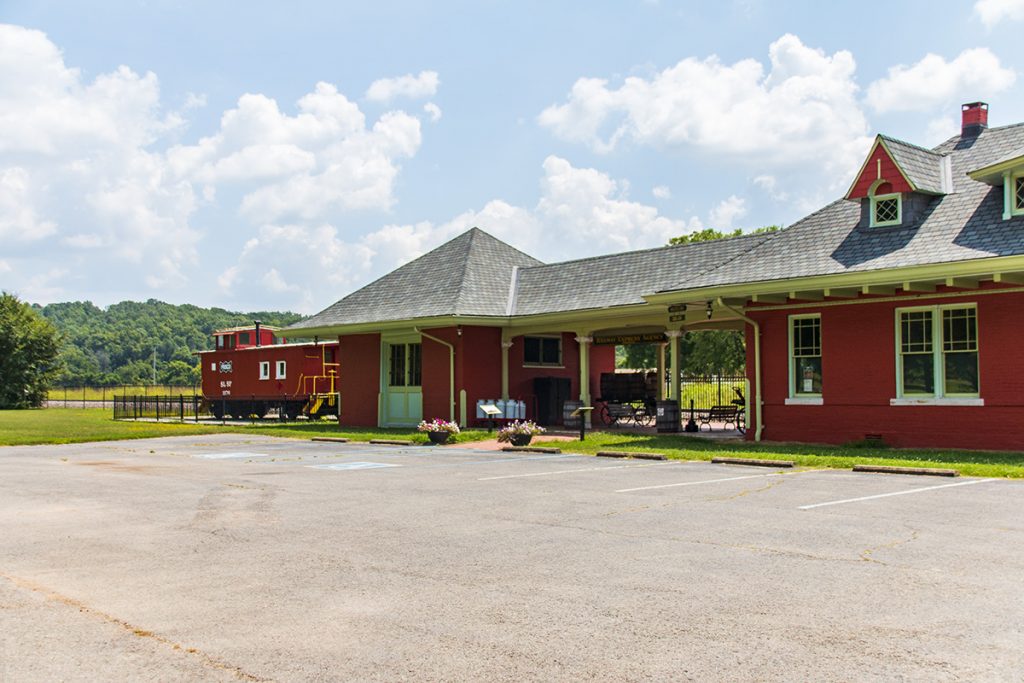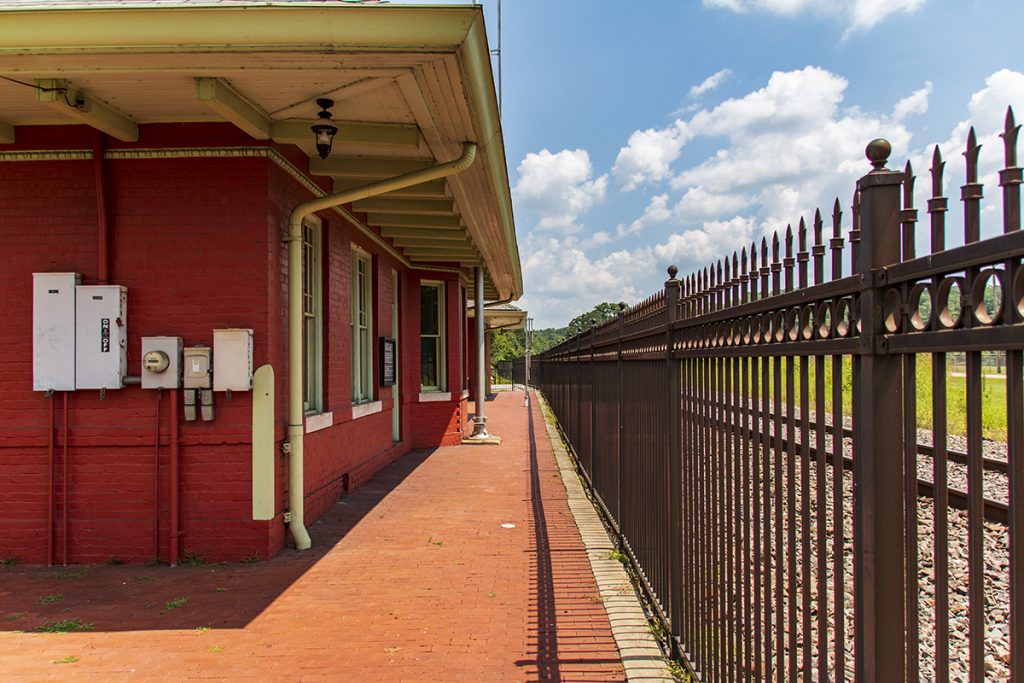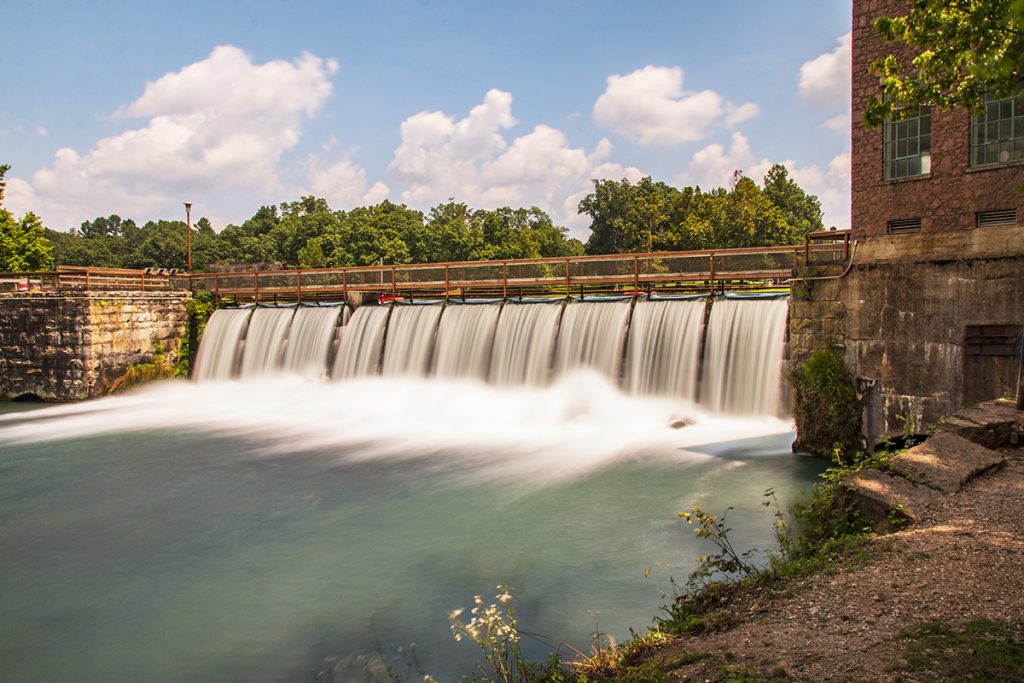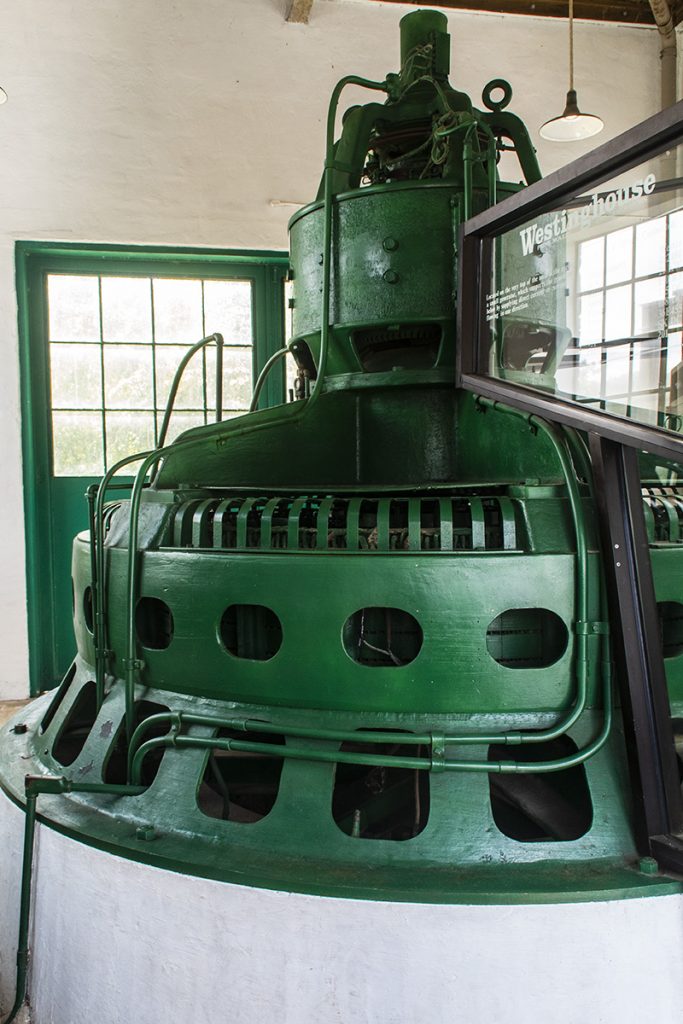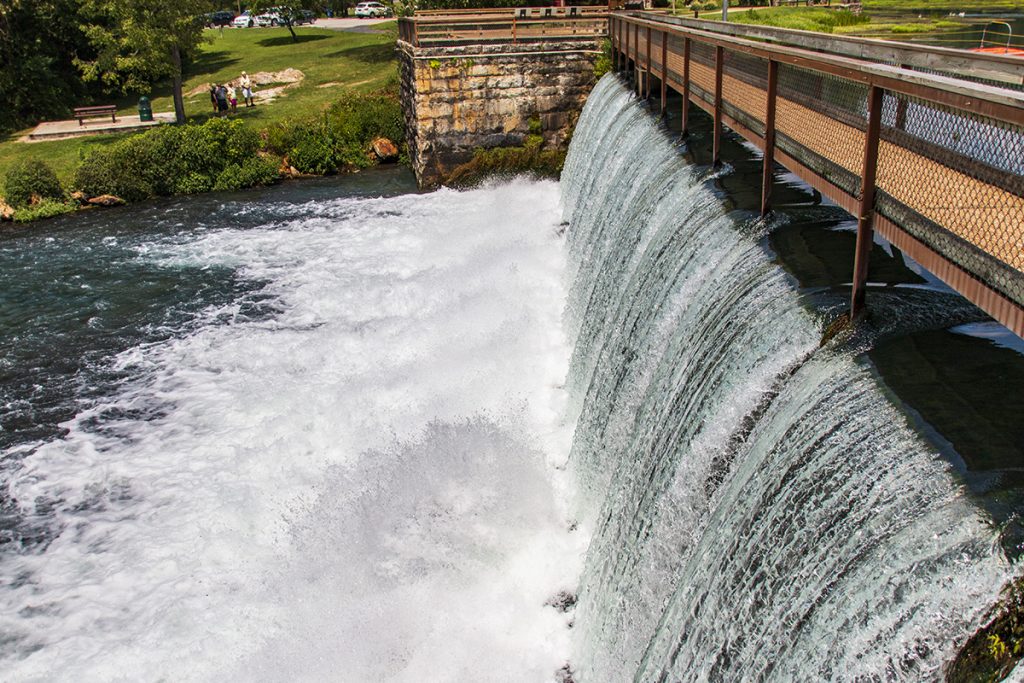The city of Mammoth Spring is nestled along the Arkansas/Missouri border in North Central Arkansas. We wanted to take you along as we traveled to see the spring from which the city got its name.
We visited Mammoth Spring State Park to view the spring. This is a huge spring that bubbles up from underground at the north end of the park. According to the signs posted in the park, the spring emits an average flow of 9.78 million gallons of water per hour. So the average amount of water flowing from this underground spring is about 235 million gallons daily.
All of this water flows from underground and across two outflow areas into the lake created by a dam on the park’s south end. The dam was used to redirect the flow of water through a hydroelectric generator in the early part of the 20th century.
View of train station across the lake.
Mammoth Spring State Park
As you read the article you can click on any of the photos to see a larger version in your browser. Our tour started directly behind the visitor center. This is where you can see
View Across Mammoth Spring Lake From The Bridge Platform
A Piece Of History
As you continue north along the path to the spring you will see an old artillery piece to your left. Known locally as the “Big Gun”, the sign placed with the gun tells about its history. It is fired at dawn and dusk each day during the annual week-long celebration known as the “Reunion of the Blue and Gray”. This celebration is held annually in July.
The Big Gun
Mammoth Spring
After you view the “Big Gun” continue north along the walking path and you’ll come to Mammoth Spring. If you’ve been to other small natural springs you’ll marvel at the amount of water that comes to the surface here from underground. These are some photos from the first outflow that you encounter along the path.
Mammoth Spring First Outflow
First Outflow Side View
There also is an abundance of wildlife in the park. Below is a photo of a mother wood duck and her ducklings. She and her brood decided to rest in the shade just a few feet from where we were shooting.
Mother Wood Duck and Ducklings
Continue along the path for a short distance and you will come to another bridge that gives you a good view of the second outflow from the Mammoth Spring. The roaring water gives you an idea of how much water is emitted from the spring.
Second Outflow from Mammoth Spring
Be sure and take the path to your left up to the raised viewing platform. From there you can get a sense of how large Mammoth Spring truly is.
Mammoth Spring
Train Station and Museum
You can follow the trail back down the way you came to the walkway and continue around the lake. This will take you to the train station and museum that you could see across the lake from the visitor’s center. We found that the museum was closed on Monday so we were unable to get any photos from inside.
Train Station and Museum
Train Station and Museum Track Side
Dam and Hydroelectric Plant
The trail around the lake is a loop trail. As you continue from the train station you will arrive at the dam and the old hydroelectric power plant. The dam was built in 1888 to provide water power to drive machinery for local industry. The rights to the dam were bought in 1925 by the Arkansas-Missouri Power Company. In 1927 the hydroelectric plant was built. It provided electricity to the area until 1972.
Mammoth Spring Dam
Hydroelectric Generator at Mammoth Spring
Mammoth Spring Dam Side View
As you can probably see from the photo above from this point it is only a short walk back to the parking area. Before you leave be sure to visit the friendly folks in the Visitor Center and pick up a drink, snack, or souvenir.
For further info on the area including local lodging and dining, you can visit the City of Mammoth Spring website.
We enjoyed our visit to Mammoth Spring and we hope you enjoyed reading about it. If you have the opportunity this makes a great day or weekend trip. Please follow us on Facebook to get photos and info that may not make it into a full blog post. You can also visit our YouTube channel to see our videos.
